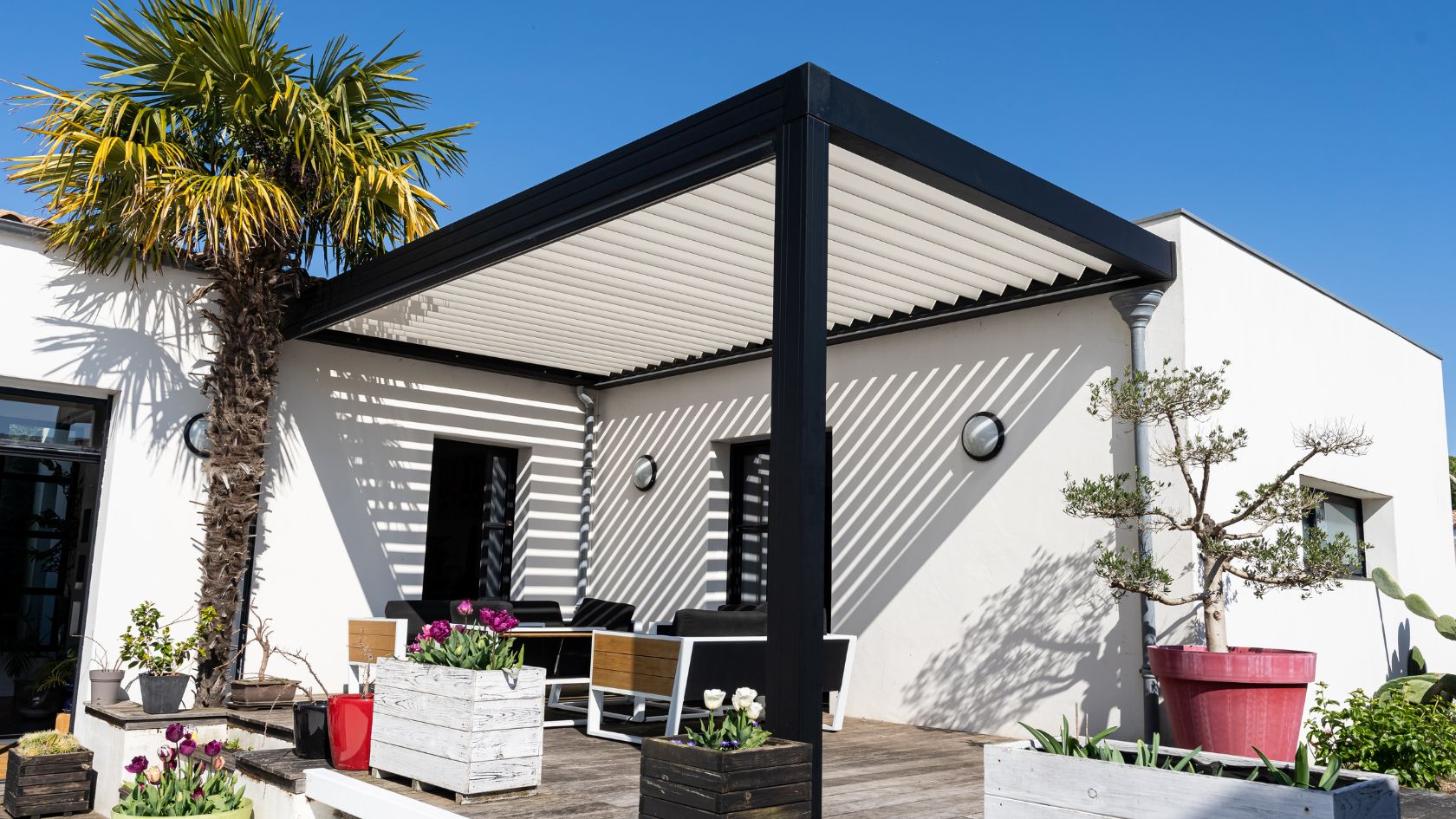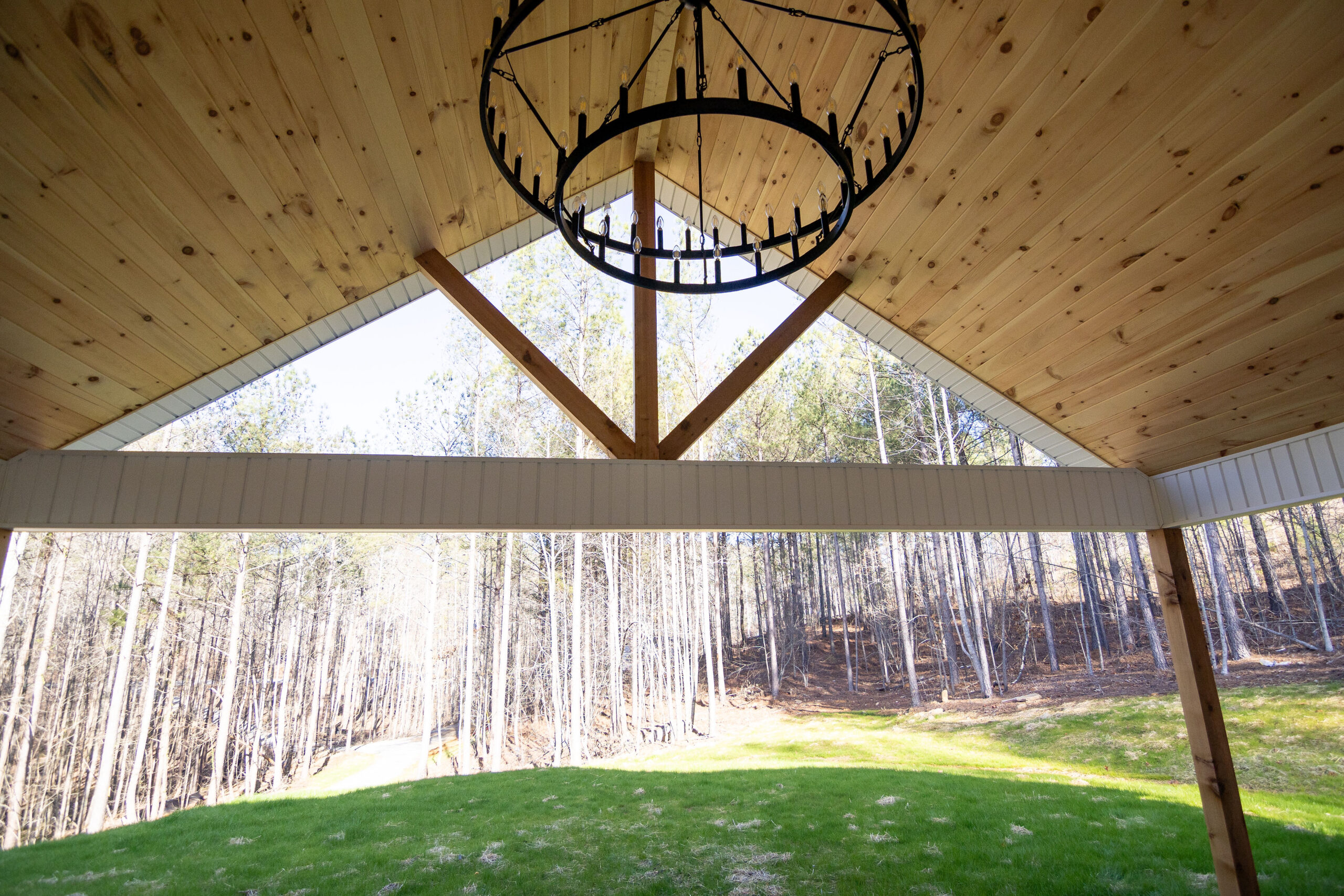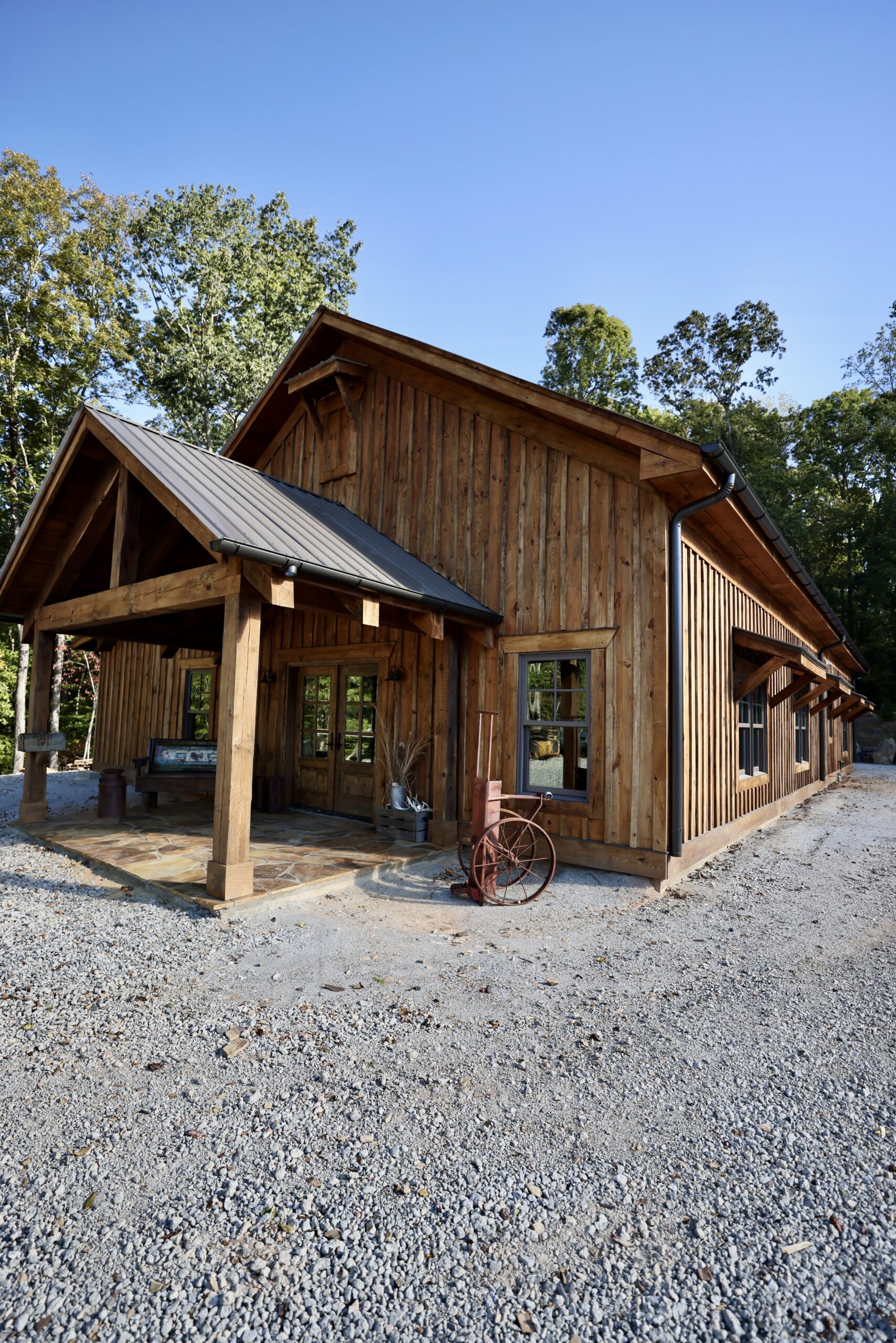
Thinking about building an eco-friendly custom home in North Georgia? That’s a smart move. Not only are you contributing to a healthier planet, but you’re also setting yourself up for long-term savings and comfort. With the region’s unique climate, blending eco-friendly designs with energy efficiency can make a huge difference in how your home performs over time.
Building a sustainable home doesn’t mean you have to sacrifice style or comfort. In fact, incorporating eco-friendly features can enhance your home’s beauty, functionality, and value. Let’s break down the best strategies for building a green, eco-friendly custom home in North Georgia that’s built to last.
1. Sustainable Building Materials
Why Does It Matter What You Build With?
When it comes to eco-friendly homes, sustainable building materials are essential. Choosing materials that are renewable, recyclable, and low-impact helps reduce your home’s carbon footprint and ensures that your building process is kinder to the environment.
Reclaimed Wood
Reclaimed wood is a popular option for eco-friendly homes because it repurposes existing materials instead of using newly harvested lumber. It gives your home a rustic, natural feel and helps prevent deforestation. Reclaimed wood can be used for flooring, beams, and even accent walls, giving your home a warm, organic look that blends perfectly with North Georgia’s natural surroundings.
Benefits of Reclaimed Wood:
- Helps reduce waste by repurposing wood from old buildings and structures.
- It’s more durable than new wood, having already been seasoned and hardened over time.
- Adds character and charm to your home with its unique, weathered appearance.
Bamboo
If you want to go even greener, consider using bamboo for flooring and cabinetry. Bamboo grows extremely quickly—much faster than traditional hardwoods—making it a highly renewable resource. It’s durable, sustainable, and can be a beautiful, modern addition to your home.
Why Bamboo Is Eco-Friendly:
- Bamboo can grow back within 3-5 years after harvesting, unlike hardwoods, which can take decades.
- It’s strong and durable, making it a good option for flooring, countertops, and other high-traffic areas.
- Bamboo is also lightweight, reducing the energy needed to transport and install it.
Recycled Steel
For a more modern, industrial aesthetic, recycled steel is a fantastic choice for framing and other structural components. Steel is highly durable and recyclable, meaning you can use it multiple times without compromising its strength. Plus, steel frames offer better protection against natural disasters, making it a safer option for homes in North Georgia’s occasionally stormy weather.
Advantages of Recycled Steel:
- Steel is 100% recyclable and can be reused without loss of quality.
- It’s resistant to pests, rot, and fire, making it incredibly durable.
- Steel framing can reduce the need for maintenance over the lifetime of your home.
2. Passive Solar Design
Want to Heat and Cool Your Home Naturally?
Passive solar design is all about positioning your home to make the most of natural sunlight for heating and cooling. By strategically placing windows, walls, and other elements, you can reduce your reliance on artificial heating and cooling systems, which saves energy and lowers your bills.
South-Facing Windows
One of the easiest ways to incorporate passive solar design into your eco-friendly custom home is by installing south-facing windows. These windows capture the most sunlight during the day, naturally warming your home in the winter months. In the summer, properly designed overhangs can block the high sun, keeping your home cool.
Benefits of South-Facing Windows:
- Maximizes natural light, reducing the need for artificial lighting during the day.
- Provides natural warmth during the colder months, reducing the need for heating.
- Helps reduce energy costs by taking advantage of free, renewable solar energy.
Thermal Mass Materials
In addition to positioning your windows correctly, using thermal mass materials like concrete, stone, or tile can help regulate your home’s temperature. These materials absorb heat during the day and slowly release it at night, keeping your home warmer in winter and cooler in summer.
How Thermal Mass Works:
- During the day, thermal mass absorbs heat from the sun, storing it until the temperature drops in the evening.
- At night, the stored heat is released, keeping your home comfortable without turning on your heating system.
- In the summer, thermal mass can be shaded to absorb less heat, helping keep your home cool naturally.
3. Energy-Efficient Windows and Insulation
How Can You Keep Your Home Comfortable Year-Round?
One of the most important aspects of building an eco-friendly home is energy efficiency, and that starts with your windows and insulation. Keeping your home well-insulated and minimizing heat loss or gain through windows ensures your heating and cooling systems don’t have to work as hard, reducing energy use.
Double- or Triple-Pane Windows
For maximum energy efficiency, install double- or triple-pane windows. These windows create a barrier between the inside and outside of your home, preventing unwanted heat transfer. In North Georgia’s humid summers and cooler winters, well-insulated windows are crucial for maintaining a comfortable indoor climate.
Why Multiple Panes Matter:
- Multi-pane windows offer better insulation, reducing energy loss by up to 50% compared to single-pane windows.
- They help keep your home cooler in the summer and warmer in the winter, reducing the load on your HVAC system.
- Reduces outside noise, which is especially helpful if you’re building in a busy or more populated area.
Spray Foam Insulation
When it comes to insulating an eco-friendly home, spray foam insulation is one of the best options. It seals every crack and gap in your walls, roof, and floors, making your home airtight and preventing drafts. This type of insulation also acts as a moisture barrier, which is crucial in North Georgia’s humid climate.
Benefits of Spray Foam Insulation:
- Creates an airtight seal, preventing conditioned air from escaping and unconditioned air from entering your home.
- Reduces moisture buildup, which can help prevent mold and mildew.
- Improves energy efficiency, cutting down on heating and cooling costs.
4. Solar Power Systems
Ready to Generate Your Own Power?
One of the most impactful ways to make your home eco-friendly is by installing a solar power system. With the amount of sunshine North Georgia gets, solar panels are a great investment for homeowners looking to reduce their carbon footprint and energy bills.
Rooftop Solar Panels
Installing rooftop solar panels is one of the most popular and effective ways to generate renewable energy. Solar panels convert sunlight into electricity, allowing you to power your home with clean energy. In many cases, you can even sell excess electricity back to the grid, further offsetting your energy costs.
Advantages of Rooftop Solar Panels:
- Solar panels reduce your dependence on fossil fuels and help lower greenhouse gas emissions.
- They can significantly reduce or even eliminate your electricity bills, depending on your system size and energy needs.
- With government tax incentives and rebates, the initial cost of installing solar panels can be significantly reduced.
Solar Water Heaters
In addition to powering your home with solar energy, you can also use the sun to heat your water. Solar water heaters are an eco-friendly option that uses solar collectors to heat your water, reducing the need for conventional water heaters that rely on gas or electricity.
Why Solar Water Heating Is a Smart Choice:
- Solar water heaters can reduce your water heating bills by 50% to 80%, depending on your home’s water usage.
- They’re a great option for eco-conscious homeowners who want to reduce their reliance on nonrenewable energy sources.
- Solar water heating systems are low maintenance and can last for decades with minimal upkeep.
5. Rainwater Harvesting Systems
Want to Save Water While Living Sustainably?
Water conservation is a big part of eco-friendly living, and one of the best ways to conserve water is through a rainwater harvesting system. In North Georgia, where rainfall is plentiful, capturing and reusing rainwater is a simple and effective way to reduce your home’s water consumption.
How Rainwater Harvesting Works
A rainwater harvesting system collects rainwater from your roof, stores it in a tank, and uses it for various non-potable purposes like irrigation, flushing toilets, or washing clothes. With the right filtration system, rainwater can even be treated for potable use.
Benefits of Rainwater Harvesting:
- Reduces your reliance on municipal water supplies, which is especially helpful during droughts or water restrictions.
- Provides free water for landscaping, gardening, and other outdoor uses, reducing your water bills.
- It’s a sustainable way to manage stormwater runoff, which can help prevent flooding and erosion on your property.
Greywater Systems
Another way to reduce water consumption is by installing a greywater system. Greywater is the wastewater from your sinks, showers, and washing machines. Instead of sending this water down the drain, a greywater system filters and reuses it for things like irrigation or flushing toilets.
Why Greywater Systems Are Effective:
- They reduce your home’s overall water usage by recycling water that would otherwise go to waste.
- Greywater systems help conserve freshwater resources, making them a valuable tool for sustainable living.
- By reusing greywater, you can reduce your water bills and minimize the environmental impact of your home.
6. Geothermal Heating and Cooling Systems
Looking for an Ultra-Efficient Way to Control Your Home’s Temperature?
Geothermal heating and cooling systems are one of the most energy-efficient ways to regulate your home’s temperature. Instead of using electricity to generate heat, these systems take advantage of the Earth’s natural, consistent underground temperature to heat and cool your home.
How Geothermal Systems Work
Geothermal systems use a series of underground pipes, known as a ground loop, to exchange heat with the Earth. In the winter, the system draws heat from the ground to warm your home. In the summer, the system reverses the process, pulling heat out of your home and transferring it back into the ground.
Benefits of Geothermal Systems:
- Geothermal systems use up to 50% less energy than traditional heating and cooling systems, significantly reducing your energy bills.
- They provide consistent, reliable heating and cooling throughout the year, regardless of the weather.
- Geothermal systems are incredibly durable and have a lifespan of 25 years or more, making them a long-term investment in your home’s sustainability.
7. Smart Home Technology for Energy Management
Want Total Control Over Your Home’s Energy Usage?
Smart home technology is a game-changer for eco-friendly custom homes, allowing you to monitor and manage your home’s energy usage more efficiently. From lighting to heating to water usage, smart technology helps you reduce waste and keep your home running smoothly.
Smart Thermostats
A smart thermostat learns your habits and adjusts the temperature based on your schedule. This means your HVAC system isn’t running when you’re not home, saving you both energy and money. You can also control smart thermostats remotely, making it easy to adjust your home’s temperature from anywhere.
Benefits of Smart Thermostats:
- They reduce energy waste by only heating or cooling your home when needed.
- Smart thermostats provide energy usage reports, so you can track and optimize your energy consumption.
- They’re compatible with most HVAC systems, making them easy to integrate into any eco-friendly home.
Smart Lighting
Smart lighting systems allow you to control your home’s lights remotely or set schedules for when they turn on and off. This prevents lights from being left on when they’re not needed, reducing energy waste and lowering your electricity bills.
Why Smart Lighting Works:
- You can create lighting schedules that match your daily routine, ensuring lights are only on when needed.
- Smart lighting systems can be controlled via voice commands, apps, or even motion sensors, adding convenience and energy savings to your home.
- Many smart lighting systems use LED bulbs, which are much more energy-efficient than traditional incandescent bulbs.
Smart Water Meters
To take water conservation even further, consider installing a smart water meter. These devices monitor your home’s water usage in real-time and can detect leaks, helping you save water and prevent costly damage.
Advantages of Smart Water Meters:
- They provide detailed reports on your water usage, helping you identify areas where you can conserve more.
- Smart water meters can alert you to leaks or unusual water usage, allowing you to fix problems before they become bigger issues.
- By monitoring your water usage, you can make adjustments to reduce waste and save on your water bills.
8. Green Roofing Systems
Want to Keep Your Home Cool and Reduce Your Carbon Footprint?
A green roofing system, also known as a living roof, is a roof covered with vegetation. It’s one of the most sustainable roofing options available, providing natural insulation, reducing stormwater runoff, and helping to improve air quality.
How Green Roofs Work
A green roof is made up of multiple layers, including a waterproof membrane, a drainage layer, and soil or growing medium. Plants are then added to create a natural, living roof that provides numerous environmental benefits.
Benefits of Green Roofing:
- Green roofs help reduce the heat island effect, keeping your home cooler in the summer and reducing the need for air conditioning.
- They provide natural insulation, reducing energy costs for heating and cooling.
- Green roofs absorb rainwater, reducing stormwater runoff and helping to manage drainage on your property.
Conclusion: Building Smart and Green in North Georgia
Building an eco-friendly custom home in North Georgia is a win-win for both you and the environment. By incorporating sustainable building materials, energy-efficient systems, and renewable energy sources, you’ll create a home that not only reduces your carbon footprint but also saves you money on utilities in the long run.
Ready to get started? Lanier Home Builders is here to help you design and build the eco-friendly custom home of your dreams. They understand North Georgia’s unique climate and are experts in creating sustainable homes that blend seamlessly with the natural surroundings.
FAQs
How much does it cost to build an eco-friendly custom home in North Georgia?
Costs can vary depending on the materials and features you choose, but investing in eco-friendly options like solar panels and geothermal systems can lead to long-term savings on energy bills.
Can I install a rainwater harvesting system in North Georgia?
Yes! North Georgia’s rainfall makes it an ideal place for rainwater harvesting. These systems can be used for irrigation, flushing toilets, or even potable water with the right filtration.
Are geothermal heating and cooling systems worth the investment?
Geothermal systems can reduce energy usage by up to 50%, making them a great long-term investment. While the upfront costs are higher, the energy savings over time make them worthwhile.
How do smart home systems contribute to energy savings?
Smart thermostats, lighting, and water meters help you monitor and control your home’s energy usage, reducing waste and making your home more efficient.
What are the best materials for building an eco-friendly custom home?
Sustainable materials like reclaimed wood, bamboo, and recycled steel are excellent choices for eco-friendly homes. They reduce waste, minimize environmental impact, and are often more durable than traditional building materials.
0

























Recent Comments